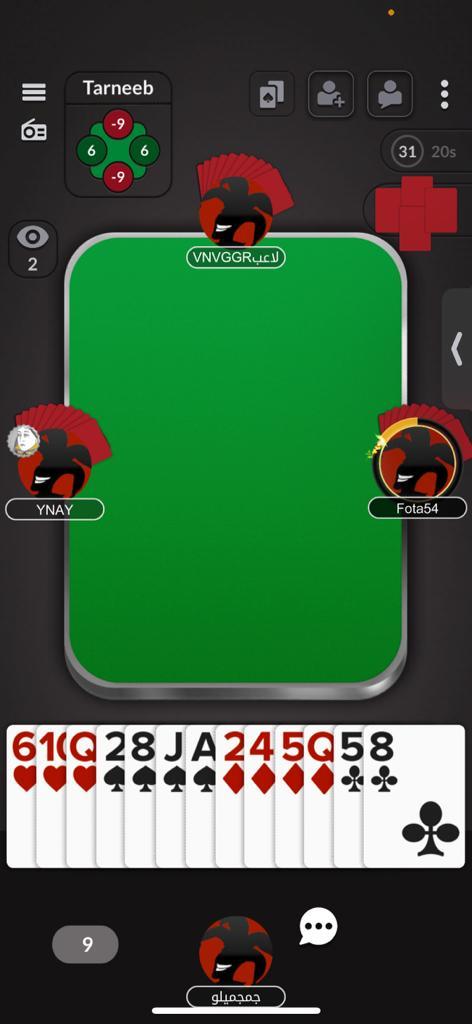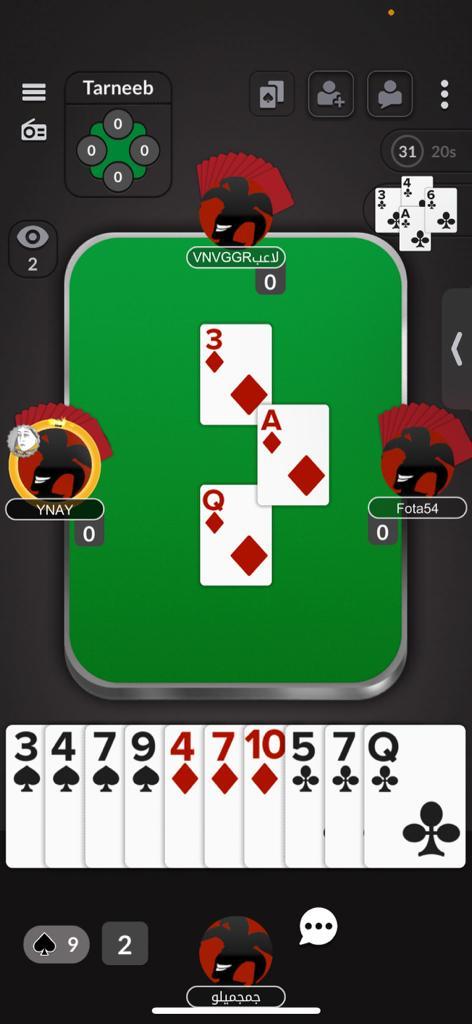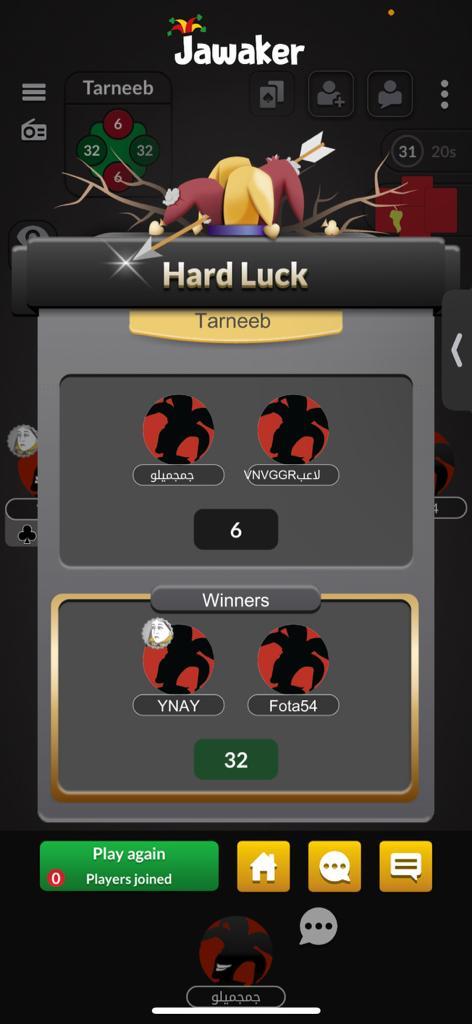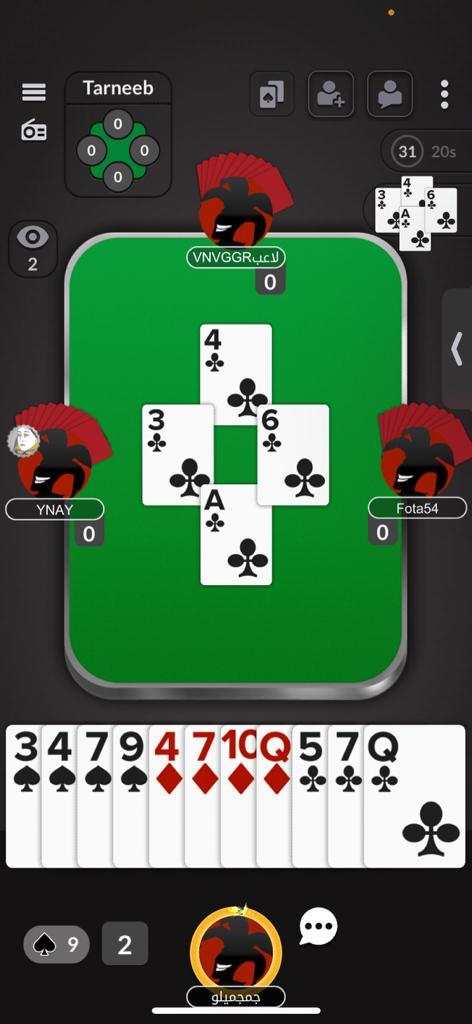Tarneeb, a popular card game originating in the Middle East, has a rich history dating back several centuries. It has captured the hearts of players in countries like Lebanon, Syria, Jordan, Palestine, and Egypt. Whether played in coffee shops by old-timers or on digital platforms like Jawaker, Tarneeb brings people together to experience the thrill of this strategic card game.
Game Mechanics:
Tarneeb is typically played with a standard deck of 52 cards. You can have either two teams of two players each or four individual players. If playing in teams, partners sit across from each other. The goal of Tarneeb is to win rounds by bidding on and capturing tricks, accumulating points along the way.
The Allure of Chance and Probability:
Tarneeb, like many card games, has an element of luck. The random distribution of cards at the start of each round introduces an exciting level of unpredictability. Sometimes, you might get dealt a killer hand, while other times, you’ll be left wishing for better cards. This element of chance can influence the outcome of individual rounds or even entire games.
Skill vs. Luck: In Tarneeb, players often attribute their wins to skill and strategy while attributing losses to bad luck. Skilled players pride themselves on accurate bidding, effective use of trump cards, and well-executed card combinations. When they lose, they may blame bad luck, citing unfavorable card distributions or opponents getting stronger hands.
Comparative Analysis:
Tarneeb shares similarities with other games that rely on chance or probability, like poker, blackjack, and digital games with loot box mechanics. However, Tarneeb stands out by promoting social interaction and emphasizing teamwork. This social dimension can enhance the gaming experience but also poses potential addiction risks as players strive for success within the game.
Addiction:
It was interesting looking into the “addiction” potential in Tarneeb. Coming from a different culture, players did not usually gamble -per se- while playing Tarneeb, and the driving force behind wanting to keep playing was mainly to restore dignity -for the lack of a better word-. However, the game is associated with dares. For example, since the game used to be dominantly played by men, players often dared the losers to shave their mustaches, a musculin feature for older middle eastern men.







